After his team's well-documented struggles in 2015, Ron Dennis admits they won't be in the title fight this year either - but he is convinced they can spring a surprise or two as the season develops. From progress with Honda to bringing in new recruits like Jost Capito, and from driver line-ups over the past two seasons to sponsors and why McLaren are in rude health, we sat down with Dennis for a typically frank and honest appraisal ahead of the 2016 season...
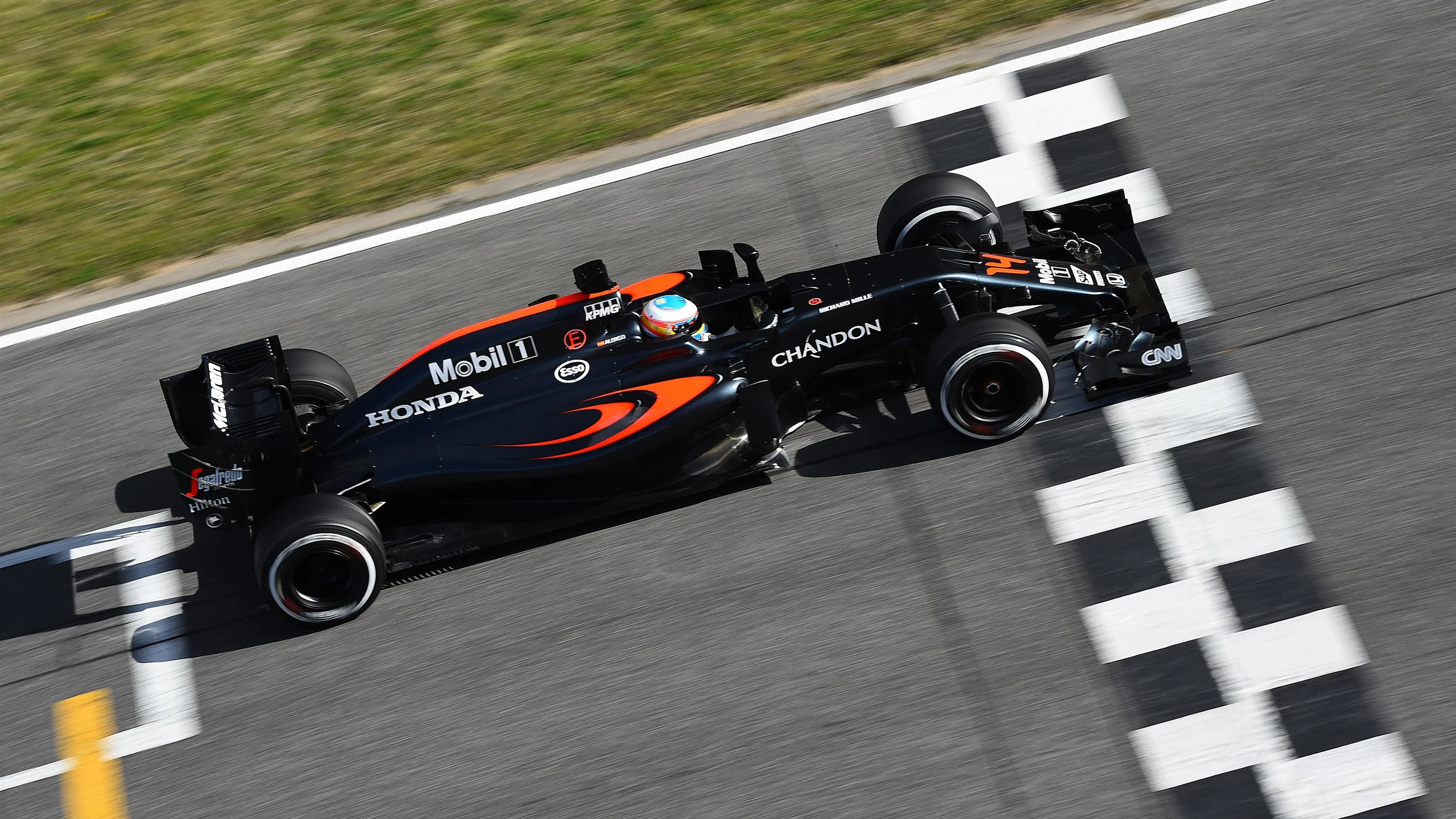
We will not be in the hunt for outright world championship glory in 2016... [but] at some point we will begin to spring a few surprises...
Q: What level of on-track performance can we expect from McLaren-Honda this season? Will either Fernando Alonso or Jenson Button win a Grand Prix, for example?
Ron Dennis: I am not about to make any outlandish predictions, and to be honest I am constantly being asked the same question, but, even so, I will answer it for you.
More markedly than in many other fields of human endeavour, Formula One teams’ performance relative to their competitors is notoriously hard to predict, not least because their target never stays still. Mercedes were the team to beat last year, and I am sure they will be strong again this season, but their principal rivals have been working extremely hard over the past few months in an effort to close the gap. The senior management of Mercedes would therefore be foolhardy indeed if they were to state publicly, now, that they expect to win the world championships for a third straight year, and that is why Niki [Lauda] and Toto [Wolff] are saying no such thing.
We at McLaren-Honda will not be in the hunt for outright world championship glory in 2016, but we expect to make good progress compared with 2015. We have been working 24-7 in Woking all winter, weekends as well as weekdays, nights as well as days, and our colleagues at Honda have also been burning the midnight oil in Sakura. Expenditure of effort does not guarantee success, of course, but you may rest assured that no Formula One team has been putting in more hours over the past few months than we have.
At some point during the season, we will begin to spring a few surprises.
Q: Clearly, Honda’s power unit was a significant contributor to your under-performance last season. What are your first impressions of Honda’s new Formula One boss, Yusuke Hasegawa?
RD: Last season was always going to be a building year for McLaren-Honda, since we were in the first year of a brand-new partnership. As we had expected, we learned a lot – and, if there were frustrations for all of us along the way, that too was only to be expected. But, through it all, we began to work ever better with one another – technically, operationally and culturally – and by the end of the season the fruits of that multi-faceted evolution were clear to see.
It has often been said before, and it will doubtless often be said again: in Formula One you are only as good as your last race. In Abu Dhabi last year, which is currently all Formula One teams’ last race, the record books record McLaren’s results as 12th [Button] and 17th [Alonso], which on the face of it is none too impressive. But Jenson’s race was marred by rear-wing end-plate damage caused by Valtteri Bottas's unsafe pit-stop release, and Fernando’s afternoon was ruined by a drive-through penalty dealt him as a result of his car having made blameless contact with Pastor Maldonado’s Lotus.
Yet, that evening, both Jenson and Fernando were very happy. Jenson described his race as ‘probably my best of the year’ and Fernando was equally delighted, aware that he had shown real pace in the closing stages, clocking a fastest race lap that had been bettered only by Lewis Hamilton and Sebastian Vettel.
Yet, having said all that, we at McLaren are motivated by the relentless pursuit of excellence – and, in a Formula One context, that equates to Grand Prix wins and world championships. Our ambitions encompass achieving exactly that. I will not say when that will occur, so please do not try to trap me into doing so. But I will say that Honda are equally ambitious. Together, we will win.
No company in the world makes more engines than Honda does. In addition to cars and bikes, Honda makes engines for generators, pumps, outboard-motor boats and a whole host of motorised horticultural tools. So when it comes to engines, believe me, they know how many beans make five. Moreover, their Formula One power unit is still in the relatively early stages of its gestation, compared with those of Mercedes and Ferrari especially, and its developmental curve will therefore remain steep for some time yet, which will trigger a series of horsepower increments over the coming weeks and months. And our chassis is already a very good one.
Finally, you mentioned Hasegawa-san. He has only recently taken up his new position, but our early impressions of him are very positive indeed. We welcome him, and we are looking forward to achieving great things with him and his colleagues.
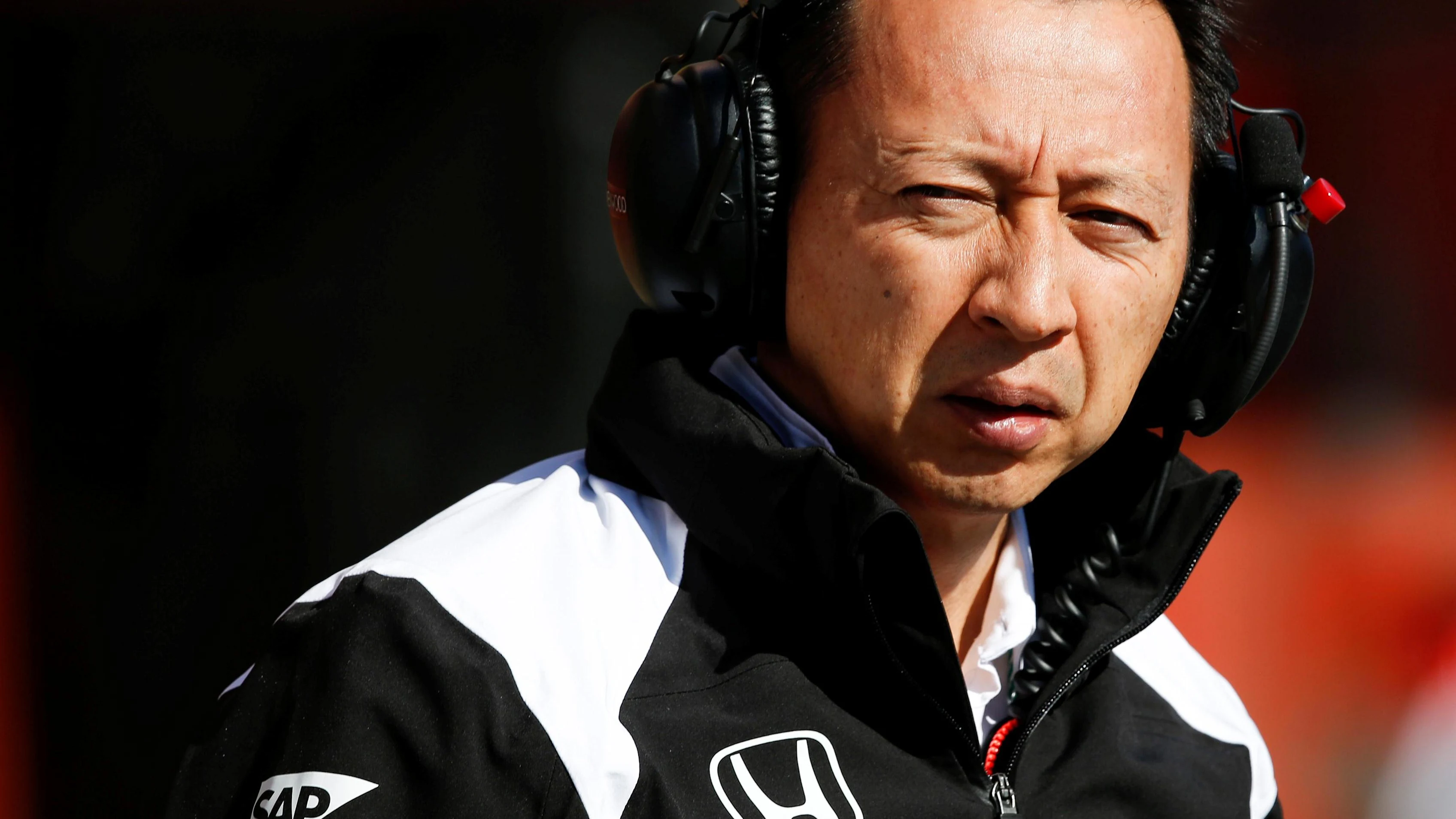
[Honda's] developmental curve will remain steep for some time yet, which will trigger a series of horsepower increments over the coming weeks and months...
Q: How will you, Eric Boullier, Jonathan Neale and Jost Capito all ‘fit in’?
RD: Jost has not yet arrived, but we expect him to take up his position with us some time in the not-too-distant future.
He is a hugely capable and experienced individual, and he is driven by an astonishingly high level of ambition. I liked him as soon as he and I began to discuss the possibility of his joining McLaren, and I know he will be successful with us.
Jonathan’s new role – Chief Operating Officer of McLaren Technology Group – is one that he is naturally equipped for, having worked at British Aerospace [now BAe Systems], the giant British aerospace and defence corporation, for 10 years prior to joining McLaren in 2001. Please remember: McLaren Technology Group is about more than just Formula One. In addition to McLaren Automotive – whose recently announced six-year expansion strategy will involve the launching of 15 new high-performance sports car models and the recruitment of 250 new staff, lifting annual car sales from its current level of 1600 to more like 3800, incidentally – McLaren Applied Technologies also has enormous potential. It is already a successful and profitable business, but Jonathan will play a key role in its rapid expansion, working closely with Ian Rhodes [McLaren Applied Technologies’ Chief Executive Officer] and myself.
Eric is an out-and-out racer. His job is to manage our race team during Grand Prix weekends. He does it extremely well. He is both able and passionate, and he gets things done. I am certain that he will work very well with Jost, when the time comes, and also with Jonathan, of course, whose new position will still include some operational responsibilities with regard to Formula One.
Q: Are your drivers too old, too rich and perhaps no longer sufficiently hungry?
RD: No, absolutely not! In Fernando and Jenson, we have the best driver line-up in Formula One today, bar none. At 34 and 36 respectively, they are both in the prime of their lives. Furthermore, they are both extremely physically fit young men – and I use the word ‘young’ deliberately. But, yes, they are experienced – supremely experienced in fact – and that supreme experience is a quality that will be both important and instrumental this year, as, together with Honda, we work systematically and logically towards improved competitiveness. Rich? They are financially well rewarded as a result of their great experience and ability. Hungry? Without a shadow of doubt, they are as hungry as ever.
Q: What are your early thoughts with regard to your driver line-up for 2017?
RD: Obviously I am not going to answer that.
What I will say is that Fernando has repeatedly confirmed, including when interviewed during the first Barcelona test only a couple of weeks ago, that he intends to complete the three years of his current contract. And that contract contains no options or performance clauses by the way: it is three years straight.
As for Jenson, he and I will speak during the course of the year. But he is a world champion, and one of the very best drivers we have ever had. Any team would be delighted to have him on their driving strength. We most definitely are.
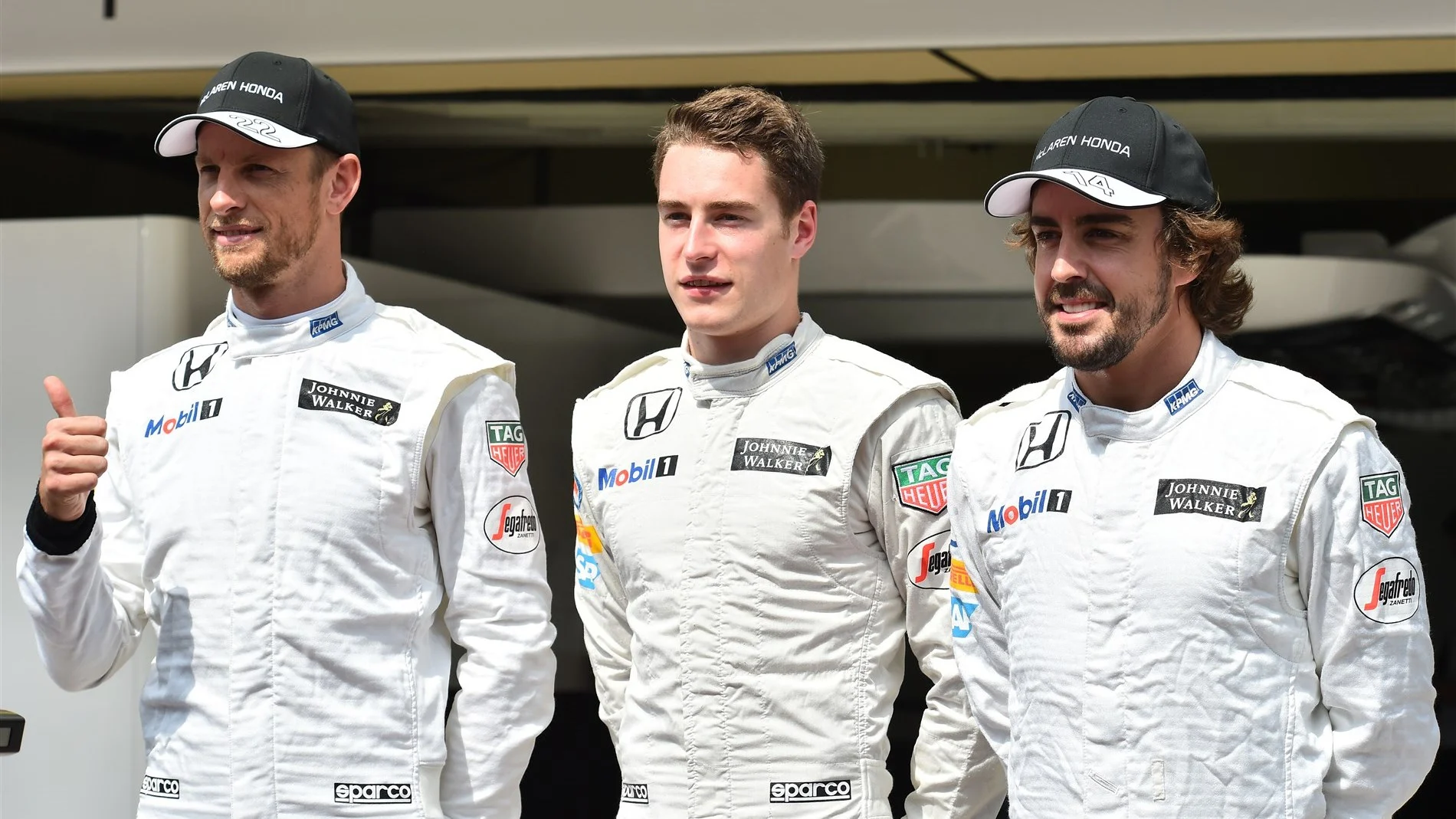
Jenson is a world champion, one of the very best drivers we have ever had. Any team would be delighted to have him
Q: Why did you make critical remarks about Kevin Magnussen late last year? And what was your reaction when you heard the news that he had secured a works Renault drive this year?
RD: Since you have asked the question, let me provide you with some important contextual detail before I answer it. Kevin became a member of McLaren's Young Driver Programme in 2009, during which year he was driving in Formula Renault 2.0. From that time until he made his Formula One debut for McLaren in Melbourne in 2014, he had been the beneficiary of a tremendously powerful five-year training programme, which had drawn on a great deal of multi-disciplinary expertise and experience culled from within dozens of our departments. And, yes, he drove very well on his Formula One debut, very well indeed, earning a podium finish first time out, and he put in some other very creditable performances that same season too.
But three into two will not go - and so it was that, when we took the decision to hire Fernando to join Jenson for the 2015 season, Kevin was forced to take the position of test and reserve driver. And, for whatever reason, he struggled with that role, which he openly admits now.
So, on October 16th last year, after Kevin had done an interview in which he revealed that I had formally notified him that we would be unable to offer him a position for 2016, we issued a press statement that included some very complimentary comments from me personally. I will read a couple of sentences of it for you: ‘We have no space for him [Kevin] at McLaren-Honda as a race driver next year, but there is no shame in being edged out by two world champions, Fernando and Jenson. We wish Kevin well, and we will do all we can to help him successfully embark on the next chapter of his racing career. He is a very talented racing driver, and he deserves to have a Formula One career.’
So it will surely not therefore surprise you to learn that when, on February 1st this year, it was announced that Kevin would race for the works Renault team this season, all of us at McLaren were delighted for him. I personally sent him a warm SMS to congratulate him and wish him well, and he replied with an equally warm ‘thank you’. And I believe he will do a very good job for Renault, incidentally.
But the fact is that it all started for Kevin with McLaren - just as, a whole generation before, it was also we at McLaren who gave his father, Jan, an important break in Formula One [Magnussen Snr made his Grand Prix debut for McLaren, in Aida, in 1995]. And, finally, let us not forget that it all started for the reigning world champion at McLaren also, because McLaren backed Lewis's career all the way from go-karts to his first Formula One world championship [in 2008, with McLaren].
Q: OK but how can you guarantee that Stoffel Vandoorne will not suffer the same fate at McLaren’s hands as Kevin suffered?
RD: Like Kevin, Stoffel is a very talented young racing driver, who has also benefited enormously from his time spent within the educative framework of the McLaren Young Driver Programme, which he joined just over three years ago. He won the GP2 championship in fine style last season – scoring seven great race wins – and he has grown in stature in recent years. He has always been intelligent, but to that intelligence he has recently added a level of wisdom unusual in one so young [23]. And he is as physically fit as any racing driver in any race series in the world, including Formula One.
This season he will race in the Super Formula series in Japan, as part of Honda-powered Docomo Team Dandelion Racing. Super Formula cars are fast and grippy, and Stoffel will be competing against ex-Formula One drivers such as Kamui Kobayashi, Kasuki Nakajima, Narain Karthikeyan and Andre Lotterer. He will fare well. His journey to Formula One has been mapped out very carefully, as is always the case with McLaren Young Driver Programme members, and we expect him to be ready in 2017.
Q: To race for McLaren?
RD: I have already told you: I am not going to be drawn into a debate about our 2017 driver line-up – after all, the first Grand Prix of 2016 has not even taken place yet.
So let me repeat myself. We are extremely satisfied with Fernando and Jenson, as any Formula One team would be, for the reasons I have already outlined. The fact that we also have Stoffel ready and waiting in the wings is an added bonus. Driver-wise, we are therefore extremely well set. In fact I would go so far as to say that, in Fernando, Jenson and Stoffel, we have by some margin the most impressive race-driver-plus-reserve-driver combo in Formula One today.
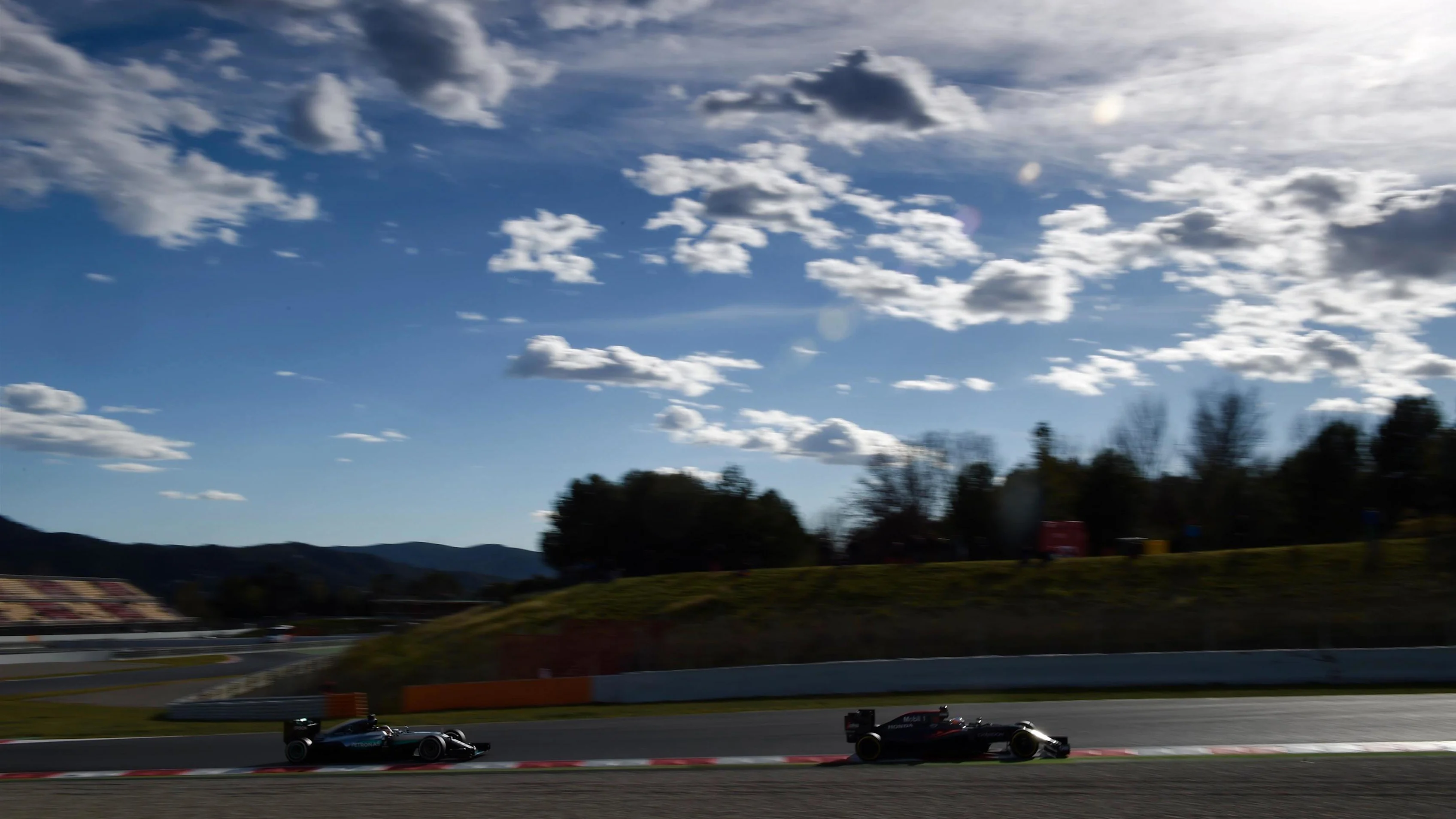
We are very well set to fund the performance development programmes that will deliver on-track success for McLaren-Honda for many years to come...
Q: Are you frustrated by the failure of Formula One’s powers-that-be to agree on technical and sporting regulations for 2017 and beyond?
RD: Formula One is a complex business – and I stress the word ‘business’ because a business is what it is. People tend to think of on-track rivalry when I talk about Formula One being ultra-competitive, but the fact is that it is ultra-competitive off-track as well. Commercially, for example, the competition for sponsors is fierce. And there are many other areas in which teams vie energetically to be number-one.
So, no, what frustrates me is not so much the teams’ failure to agree – because the matters about which we are still working to achieve consensus are complicated and involve a number of differing interests – but our apparent inability to keep such discussions private and confidential. Formula One is a business, as I say, but it also remains a truly fantastic sport. Having said that, equally, we all know that, without losing its hard-won pinnacle-of-motorsport status that constitutes a large measure of its core DNA, it must also allow itself to adapt to a modern world in which sports fans consume moving images on devices other than television sets in the corners of drawing rooms.
So we must and will discuss how best to bring that change about – but, disappointing though it may be for journalists such as your good self, we should do it behind closed doors, without then blurting out what has been discussed to the first dictaphone thrust under our noses immediately afterwards.
Q: You still have no title sponsor – is that a concern?
RD: I am glad you asked me that question, because my answer is very definitely ‘no’.
The era of the title sponsor in Formula One has probably passed. That is because Formula One sponsors today want and demand a far more complicated series of rights than ever before, focused principally on activation strategies meticulously tailored to meet their marketing objectives. In other words, the days when you slapped a big logo on the side of your car and called it your title sponsor are long gone.
Besides, McLaren Marketing, which is the dedicated McLaren Technology Group company tasked with securing sponsors – which we always refer to as ‘partners’ by the way – has had an extremely successful autumn and winter.
In September we announced Chandon, the LVMH-owned maker of sparkling wine, as a brand-new partner.
In October we announced that Hilton Worldwide, the internationally acclaimed hotel chain, had extended its partnership with us through to the end of 2019.
In December we announced that Santander, which is one of the largest banks in the world in terms of market capitalisation, had renewed its partnership with us for another five years.
In February we announced, very excitingly, that the prestige watch manufacturer Richard Mille had committed to a brand-new 10-year partnership with us.
Earlier this month, we announced that JVC Kenwood, the famous maker of hi-tech radio and electronic equipment, had renewed its partnership with us, and also that Calsonic Kansei, a global manufacturer of automotive components, had become a new partner of ours.
And, just last week, we announced that we had agreed a multi-year renewal of our long-standing partnership with Johnnie Walker.
And, let us not forget, we also have Mobil1, Esso, SAP, KPMG, CNN, Akebono, Segafredo, Norton Rose Fulbright and many more.
Finally, a couple of weeks ago we let our interim company figures be known publicly, specifically the fact that McLaren Technology Group will make a pre-tax profit of more than £6 million for 2015, which represents a £28 million positive turnaround on our 2014 published results.
So, as I think I have now made abundantly explicit, the McLaren Technology Group is in an extremely robust position from a commercial standpoint, and we are therefore very well set to fund the performance development programmes that will deliver on-track success for McLaren-Honda for many years to come.
Next Up
Related Articles
/TEAM%20PREVIEWSHALF%20TERM%20REPORTS%20DISPLAY%20V1%20(13).webp) End Of Year Reports 2025Racing Bulls’ best and worst moments from 2025
End Of Year Reports 2025Racing Bulls’ best and worst moments from 2025 Watch as the F1 grid does Secret Santa for 2025
Watch as the F1 grid does Secret Santa for 2025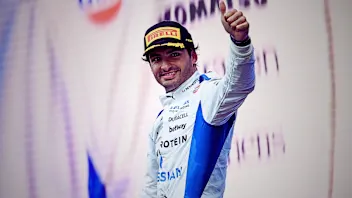 ExclusiveWhy Sainz feels ‘vindicated’ after his first Williams year
ExclusiveWhy Sainz feels ‘vindicated’ after his first Williams year WATCH: F1 Animated returns for a look back at 2025
WATCH: F1 Animated returns for a look back at 2025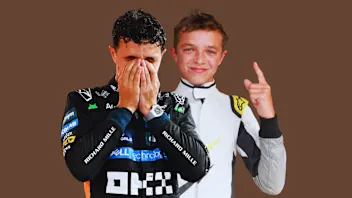 ExclusiveHow Norris made his school teachers ‘enormously proud’
ExclusiveHow Norris made his school teachers ‘enormously proud’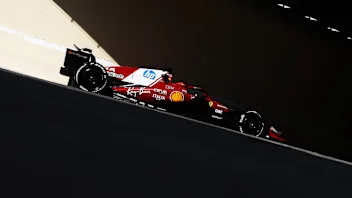 Ferrari confirm launch date for 2026 campaign
Ferrari confirm launch date for 2026 campaign